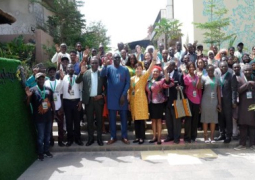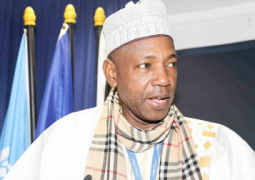
The IRENA director general was speaking during an online press conference recently between 12:00 and 12:45 p.m., Abu Dhabi, United Arab Emirates.
He said IRENA’s first Global Renewable outlook shows decarbonisation of the energy system supports short-term recovery while creating resilient and inclusive economies and societies.
Advancing the renewable-based energy transformation is an opportunity to meet international climate goals while boosting economic growth, creating millions of jobs and improving human welfare by 2050.
“Governments are facing a difficult task of bringing the health emergency under control while introducing major stimulus and recovery measures,” he said, adding that the crisis has exposed deeply embedded vulnerabilities of the current system and IRENA’s outlook shows the ways to build more sustainable, equitable and resilient economies by aligning short-term recovery efforts with the medium-and long-term objectives of the Paris Agreement and the UN Sustainable Development Agenda.”
“By accelerating renewable and making the energy transition an integral part of the wider recovery, governments can achieve multiple economic and social objectives in the pursuit of a resilient future that leaves nobody behind.”
Mr. Francesco La Camera explained that the global renewable outlook examines building blocks of an energy system along with investment strategies and policy frameworks needed to manage the transition. It also explores ways to cut global CO2 emission by at least 70 percent by 2050.
The outlook also looked at energy and socio-economic transition paths in 10 regions worldwide. Despite varied paths, all regions are expected to see higher shares of renewable energy use, with Southeast Asia, Latin Ameica, the European Union and Sub-Saharan Africa poised to reach 70-80 percent shares in their total energy mixes by 2050.
Read Other Articles In Headlines

Minister Jobe presides over West Africa Ecotourism Network Annual Summit
May 10, 2024, 11:18 AM




